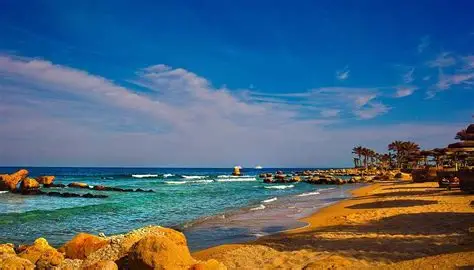One of Egypt’s last untouched Red Sea beaches is at the center of a mounting controversy after plans emerged to build a resort inside Wadi al-Gemal National Park, raising fears for a fragile ecosystem where endangered sea turtles thrive.
At Ras Hankorab, green turtles swim through coral gardens that scientists consider among the most resilient to climate change. During nesting season, they crawl ashore at night under the stars, undisturbed by artificial lights.
That serenity was shattered in March when excavators appeared on the sand, prompting protests from park rangers, conservationists, and thousands of Egyptians who signed a petition to “Save Hankorab.”
The Environment Ministry intervened to stop construction, but questions linger after it emerged that a contract had been signed between an investment company and a government entity outside the ministry’s authority. No details of the deal have been disclosed despite parliamentary requests, fueling suspicion that the project could still go ahead.
“Only certain kinds of tourism development work for a beach like this,” said Mahmoud Hanafy, a marine biology professor and adviser to the Red Sea governorate. “Noise, lights, heavy human activity, they could destroy the ecosystem.”
Declared a protected area in 2003, Wadi al-Gemal has been described by the UN Development Programme as home to “some of the last undisturbed natural beaches” on Egypt’s southern Red Sea coast. Yet it now finds itself caught between conservation and Cairo’s push to expand coastal tourism to ease its worst economic crisis in decades.
President Abdel Fattah al-Sisi’s government has earmarked vast stretches of Red Sea land for development as part of a broader plan to double tourist arrivals to 30 million by 2028. Environmental experts warn, however, that unchecked resort expansion has already displaced communities and damaged fragile habitats.
Legal experts argue that the Hankorab deal is invalid because it bypassed the ministry responsible for managing the reserve. “The goal is to make as much money as possible from developing these reserves, which means destroying them,” said environmental lawyer Ahmed al-Seidi. “It also violates the legal obligations of the nature reserves law.”
For now, construction remains suspended, but subtle changes are visible: a new gate marked “Ras Hankorab” now charges visitors 300 Egyptian pounds ($6), five times the previous fee, while new toilets, sun loungers and a café are being rolled out.
MP Maha Abdel Nasser, who raised the issue in parliament, said the suspension was “reassuring, at least for now,” but warned that the lack of transparency means “there are no guarantees about the future.”
The fate of Ras Hankorab, and the endangered wildlife that call it home, remains unresolved, a test of how Egypt balances environmental protection with its drive for economic recovery.
Written By Rodney Mbua



















